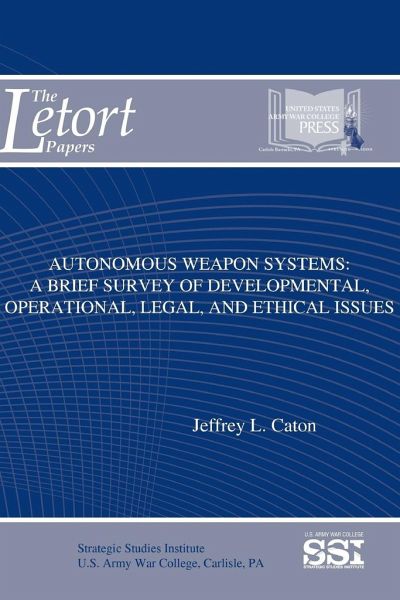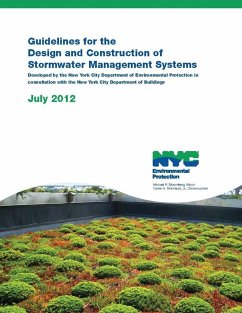
Autonomous Weapon Systems
A Brief Survey of Developmental, Operational, Legal, and Ethical Issues
Versandkostenfrei!
Versandfertig in 1-2 Wochen
19,99 €
inkl. MwSt.

PAYBACK Punkte
10 °P sammeln!
Stories about unmanned vehicles now appear regularly in the national news-and not always in good ways. Within the last 2 years, privately-owned drones have crashed on the White House lawn, surveilled the U.S. Embassy in Paris, and buzzed German Chancellor Angela Merkel. When used in military operations, autonomous weapon systems (AWS) have the potential to save lives as well as apply lethal force across land, sea, and air. In this Letort Paper, Mr. Jeffrey Caton posits that the development of AWS policy and doctrine should characterize autonomy not as a discrete property of a given system, but...
Stories about unmanned vehicles now appear regularly in the national news-and not always in good ways. Within the last 2 years, privately-owned drones have crashed on the White House lawn, surveilled the U.S. Embassy in Paris, and buzzed German Chancellor Angela Merkel. When used in military operations, autonomous weapon systems (AWS) have the potential to save lives as well as apply lethal force across land, sea, and air. In this Letort Paper, Mr. Jeffrey Caton posits that the development of AWS policy and doctrine should characterize autonomy not as a discrete property of a given system, but rather as a function that varies in its strategic, operational, and tactical context and mission application. Further, he argues that AWS design, planning, and operations should be tempered with the purposeful consideration of human judgment and control as well as legal and ethical standards that foster international credibility.












